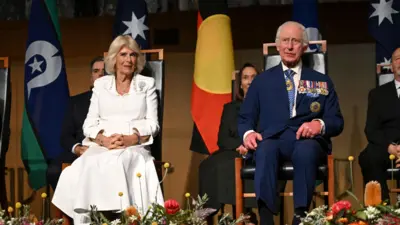We've updated our Privacy and Cookies Policy
We've made some important changes to our Privacy and Cookies Policy and we want you to know what this means for you and your data.
Gary Mckinnon: High Court judges try to speed up case
The long-running case of computer hacker Gary McKinnon is taking too long to come back to court, the High Court has said.
Two judges have now listed it for a hearing in July.
They acted after hearing that the home secretary is "considering afresh" whether Mr McKinnon should be extradited to the US.
Mr McKinnon, who has Asperger's syndrome, is accused of hacking US military computer systems in 2002.
Edward Fitzgerald QC, appearing for McKinnon, told the judges it was hoped Theresa May would block US government extradition moves so there would be no more need for court action.
The evidence of medical experts before her showed McKinnon, 45, was "suffering from a serious mental disorder and there is a serious risk of suicide if extradited", he said.
Glasgow-born Mr McKinnon, from Wood Green, north London, admits hacking into 97 Pentagon and Nasa computers from his flat, but claims he was looking for evidence of UFOs .
Vulnerable
In December, his mother Janis Sharp called for her son to be tried in Britain and said attempts to remove him to America had "destroyed" his life.
Mr McKinnon was arrested in June 2005 and an order for extradition was made against him in July 2006 at the request of the US government under the 2003 Extradition Act.
The move has triggered three successive applications for judicial review which have called into question the fairness of extradition laws, in particular the UK-US extradition treaty, which critics have condemned as "one-sided" in favour of the Americans.
The latest legal challenge to the 2006 extradition order was launched early in 2010 but adjourned for a new home secretary to investigate the issues.
Mr Fitzgerald said of the case: "We hope it will never come back to court."
Shami Chakrabarti, director of human rights campaigners Liberty, said Mr McKinnon's 10-years in limbo "shamed" the UK authorities and outraged the public.
She said: "His case shows how politicians are all for rights and freedoms in opposition but often hear a different drum in office.
"Ministers are good at lecturing judges about human rights, but if government won't protect the vulnerable, the courts must perform that duty".
Top Stories
More to explore
Most read
Content is not available








